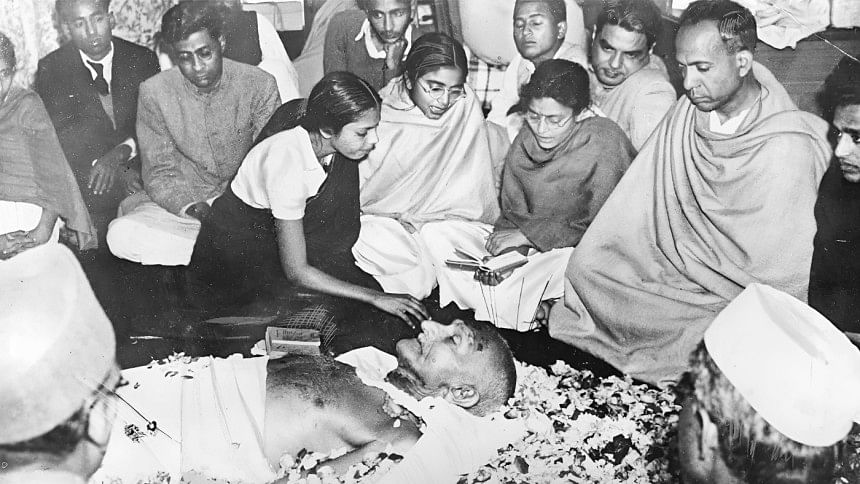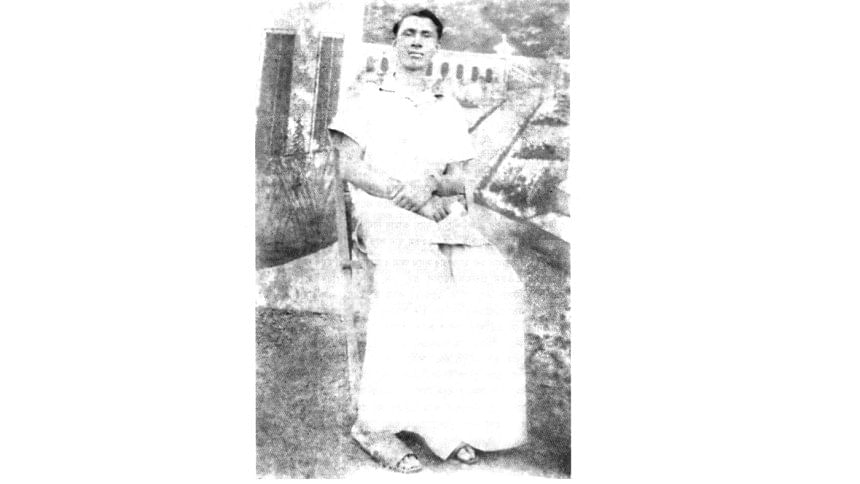Self and Society: Tajuddin’s formative years

No leader emerges in a vacuum. The making of a political figure is deeply influenced by the social structures around them—family, religion, education, and the broader environment all leave lasting imprints. Equally important is the role of childhood psychology, which shapes values, convictions, and the capacity for public life. In the case of Tajuddin Ahmad, Bangladesh's first Prime Minister during the Liberation War, these formative forces were especially significant. Understanding his early years offers essential insight into how a quiet, disciplined village boy grew into one of the most principled and selfless politicians of his time.
Tajuddin Ahmad was born on 23 July 1925 in the village of Dardaria under Kapasia Thana, in what is now Gazipur District but was then part of the undivided Dacca District. He was born into a traditional Bengali Muslim family, the son of Moulavi Muhammad Yasin Khan and Meherunnesa Khanam.
During his school years, Tajuddin Ahmad caught the attention of three veteran revolutionary leaders, who recommended that he be enrolled in a better institution. Following their advice, he was admitted to St Nicholas Institution in Kaliganj. His academic brilliance soon became evident, prompting the headmaster to recommend his transfer—first to Muslim Boys' High School in Dhaka, and later to St Gregory's High School. Remarkably, he also became a Hafez of the Holy Qur'an during this time.
His strong educational foundation led to early academic success: he ranked 12th in the first division in the 1944 matriculation examination and secured fourth place in the first division of the Higher Secondary Examination in 1946. He went on to complete his BA and MA at Dhaka University, all while remaining actively engaged in politics.
The establishment of Dhaka University in 1921, following the annulment of Bengal's first Partition, marked a significant turning point for Eastern Bengal. It coincided with the political awakening of Bengali Muslims and the rise of parties like the Muslim League and the Krishak Praja Party, as the Indian National Congress gradually lost support among Muslims in Bengal. In this evolving political context, Tajuddin Ahmad's early affiliation with the Muslim League seemed a natural step.
One of the most revealing sources for understanding Tajuddin Ahmad's early development is his personal diary, which features regular entries beginning in 1947—a watershed year that marked the Partition of India and the end of British colonial rule. Deeply private in nature and never meant for publication, only a small portion of these entries have survived.
Though emotionally reserved in his writing, Tajuddin Ahmad meticulously recorded significant political events and moments of historical importance. His diaries provide valuable insights into the gradual formation of his personality and worldview, revealing how, during his formative years, he engaged with local affairs, mediated social and political issues, and kept track of global developments.
In the first volume of his diary—written at the age of 21—Tajuddin Ahmad noted how little time he had for studying in the mornings, as politics increasingly consumed his daily routine. Each entry ended with a brief comment on the day's weather, a habit that revealed both his discipline and his observant, analytical nature. Other entries suggest a growing emotional sensitivity and a compassionate outlook that often extended beyond personal or party boundaries.
On 13 August, he reflected on the stark contrast between the Congress and the Muslim League, labelling the former a communal party—an expected view for a League member at the time. In his entry on 15 August 1947, he simply wrote "Independence". He described a crowd of nearly one lakh, including many Hindus, who joined the celebrations in Dhaka, though he noted it was smaller than that on Direct Action Day.
Disillusionment followed quickly. Even before Partition, Tajuddin and his associates were already contemplating a political alternative. On 7 August, he wrote that he, Kamruddin Ahmad, Mohammad Toaha, and others were drafting manifestos for a prospective party, provisionally titled the East Pakistan Economic Freedom League or Gana Azadi League.

Kamruddin Ahmad later explained that this initiative had begun in June 1947, after the failure of the independent Bengal proposal and Abul Hashim's decision not to join Pakistan. In response, the group sought to unite with East Pakistan's communists to resist what they saw as a fascist Muslim League regime. This effort culminated in the formation of the Gana Azadi League, with Kamruddin as convener and Tajuddin, Toaha, Oli Ahad, and others as members of its first committee.
On 26 August 1947, he met a Muslim League leader who became furious upon learning about their efforts to form a new party without remaining within the League. In his 29 August entry, he noted responding to questions about their stance on the communist movement, and described discussions they had about the global dynamics of youth movements. Then, on 30 August, he wrote that they had decided not to use the word "Muslim" in the name of the city committee or the party itself, which had yet to be finalised, and Tajuddin himself explained all about their efforts.
One of the most poignant entries in Tajuddin Ahmad's diary is dated 30 January 1948—the day Mahatma Gandhi was assassinated. He admitted that he had frequently criticised Gandhi, echoing the Muslim League's party line without independent reflection. But on that day, he wrote, he truly grasped the meaning of death. His father's death did not move him to grief, yet the news of Gandhi's assassination left him numb. So profound was his reaction that he was unable to write in his diary for three days—a rare interruption in his otherwise disciplined habit—underscoring the emotional depth of his response and the quiet transformation in his political awareness.
He also recalled the death of poet Rabindranath Tagore in 1941, when he had managed to buy a newspaper and kept it as a cherished memento. In contrast, he noted, the demand for news following Gandhi's assassination was so overwhelming that newspapers were hard to find—people had to share whatever copies they could get hold of.
Only on rare occasions does Tajuddin Ahmad reveal his personal feelings or emotions in his writings; instead, he consistently focuses on people and society—an orientation that, in retrospect, aligns with his eventual path as a politician.
Professor Serajul Islam Choudhury notes that Tajuddin Ahmad embodied qualities often associated with motherhood—patience, steadiness, and quiet strength. These traits were evident in his wartime leadership as Prime Minister in 1971, when he steered the country through its most turbulent period with calm determination. In later entries of his diary, Tajuddin fondly recalled tender moments with his mother, such as watching her late at night as she made cakes in the kitchen—scenes that reveal his emotional closeness to her.
By contrast, his emotional distance from his father may symbolise a deeper discomfort with patriarchal authority, perhaps mirroring his quiet resistance to the authoritarian tendencies of the state.
A closer reading of his surviving writings, along with more sustained historical inquiry, could uncover hidden layers of his formative years—years that shaped one of Bangladesh's most principled political leaders. While his politics evolved, his moral conviction, democratic commitment, and deep respect for others remained constant.
Priyam Paul is a researcher and journalist.

 For all latest news, follow The Daily Star's Google News channel.
For all latest news, follow The Daily Star's Google News channel. 


Comments